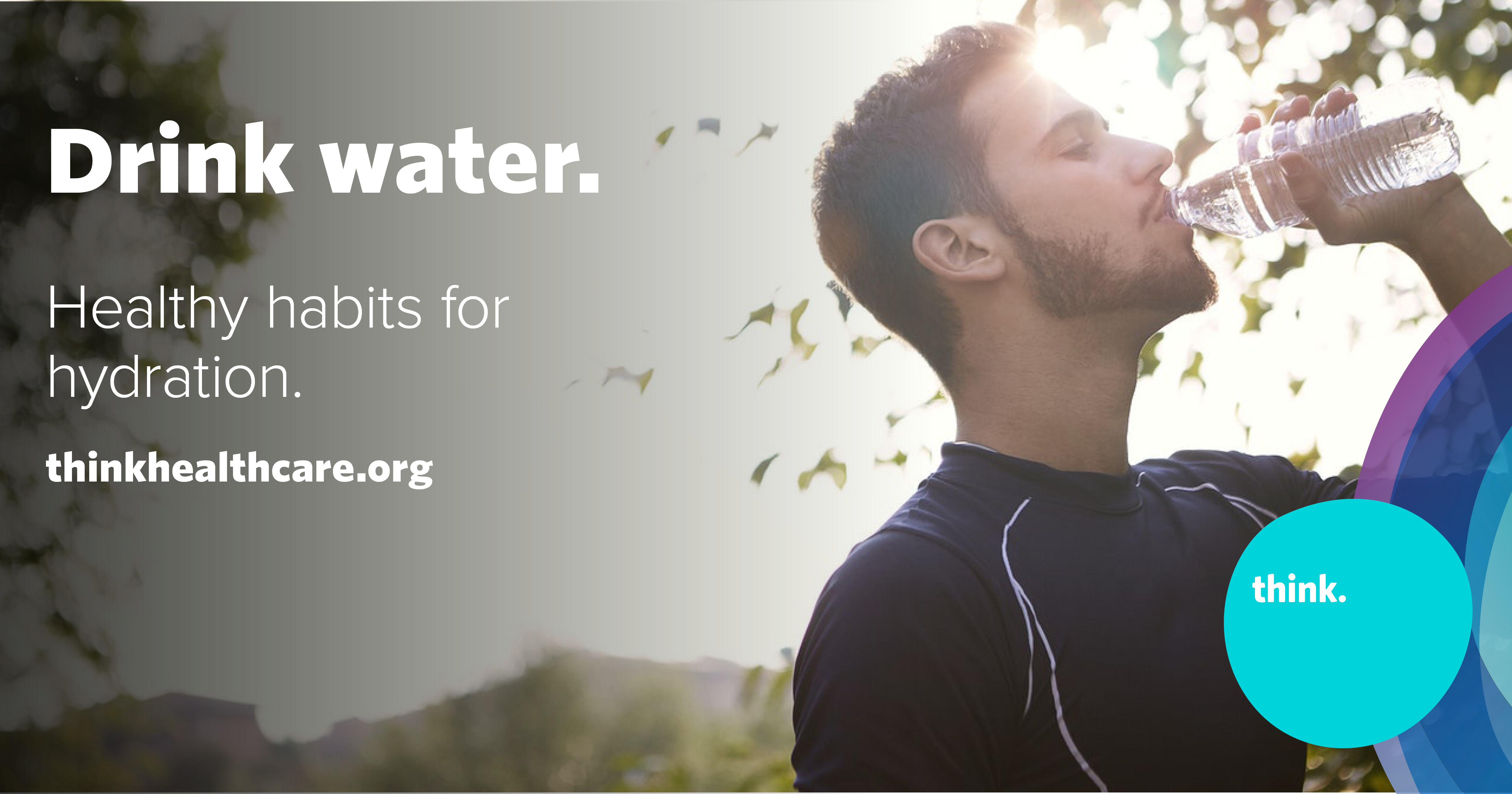How to create healthy habits for drinking water.
Staying hydrated is something 75% of Americans struggle with daily. Our diets play a significant role in how hydrated we are. Pop, caffeine, and salt – to name a few – dry out our bodies and decrease their ability to absorb nutrients. Did you know that water makes up almost 70% of the weight of a human? And through normal functions (respiration, sweating, urine, and bowel movements), we expel about 3.5 liters a day or roughly eight 16-ounce glasses. Add temperature, humidity, and activity, and that number can increase significantly.
Five effects of dehydration
Dehydration causes fatigue. Dehydration is the number one cause of midday fatigue. So, next time there’s a yawn in the afternoon, drink a glass of water and see if you perk up.
Being Hydrated will perk up your metabolism. Think of your body as a machine. If you operate a machine with improper fluid levels, it won’t work properly. Our bodies are the same way.
Kidney stones can occur if you are dehydrated. Water is essential in helping remove waste from your body. When dehydrated, the kidneys won’t function properly, and the waste material can build up, causing kidney stones.
Dehydration can cause cognitive disorders. Even in children, studies found that hydrated children have better attention spans and focus. Adults tend to be moodier, and their cognitive functions become impaired from the lack of water. Dehydration can also cause headaches. Sipping water throughout the day can help stave off headaches.
Dehydration can cause bad breath. Believe it or not, dehydrated people produce less saliva–a key component at keeping oral bacteria in check. With less saliva, we produce more and more bacteria causing that embarrassing bad breath.
But how do I know I’m dehydrated before it’s too late?
The best way to not get dehydrated is to create healthy habits like drinking water throughout the day. But if you find yourself not quite at the stage of carrying a water bottle everywhere you go, then here are a few ways to see if you are becoming dehydrated.
Is your skin rough, dry, or not as elastic as it normally is? A good test is to pinch the skin on the back of your hand and pull up. When you let go, your skin should snap right back into place with little to no signs you pulled your skin. If you see wrinkles remain or it seems like it takes a while to return, you are probably dehydrated or on your way to dehydration.
Does your mouth feel dry? It takes a lot of water to make sufficient saliva, and the lack of saliva will make your mouth feel sticky and dry.
What color is your urine? If it’s not very light in color but a dark yellow or amber, you are dehydrated. Another good sign is if you can smell your urine when you go to the bathroom.
Are your bowel movements regular? Water is important for digestion. Especially with older adults, dehydration can cause constipation and, in more extreme cases, can contribute to bowel impactions.
Do you have a sweet tooth? If you find yourself craving sweets, think of the last time you had a glass of water. If it’s been more than an hour, have a glass before diving into the sweets.
So, how do we fight dehydration?
It takes about 45 minutes for a person’s body to absorb water. The more dehydrated a person is, the longer it takes for the body to absorb water properly. Here are a few fool-proof ways to get your body on the path to being hydrated.
Want to try our Seven in Seven challenge?
